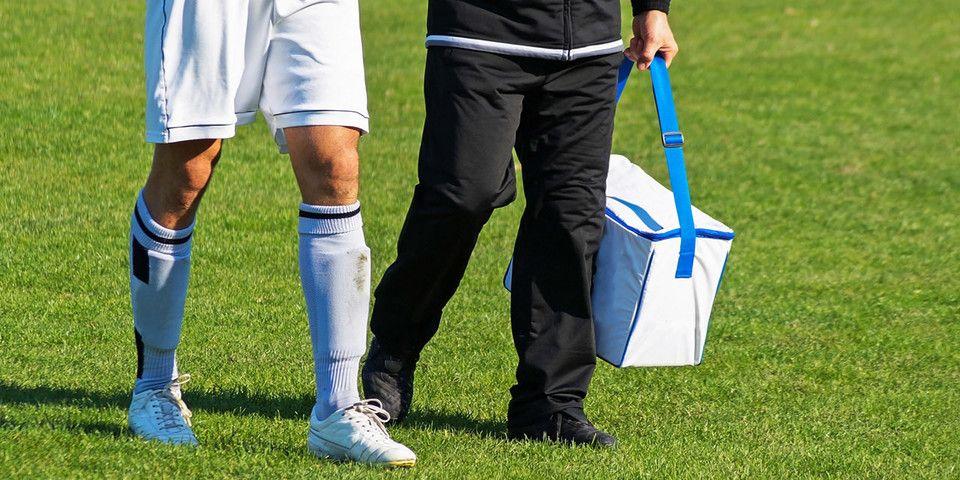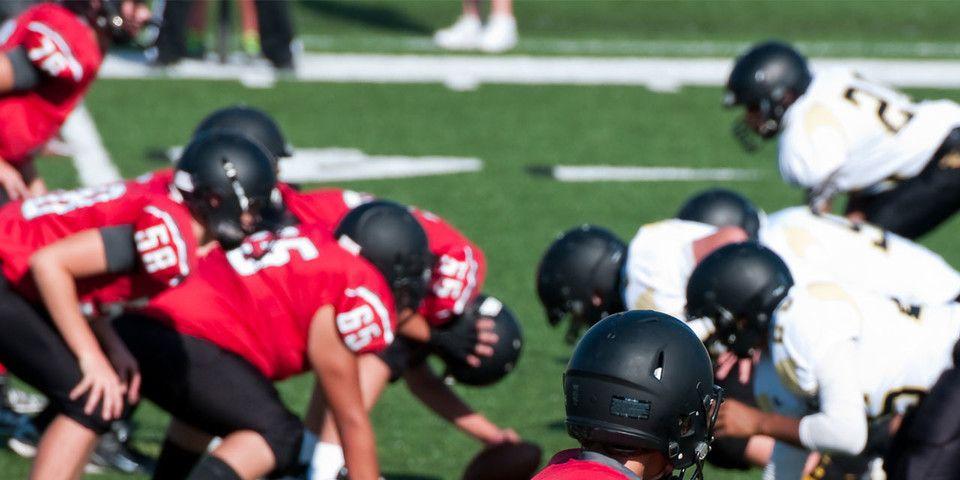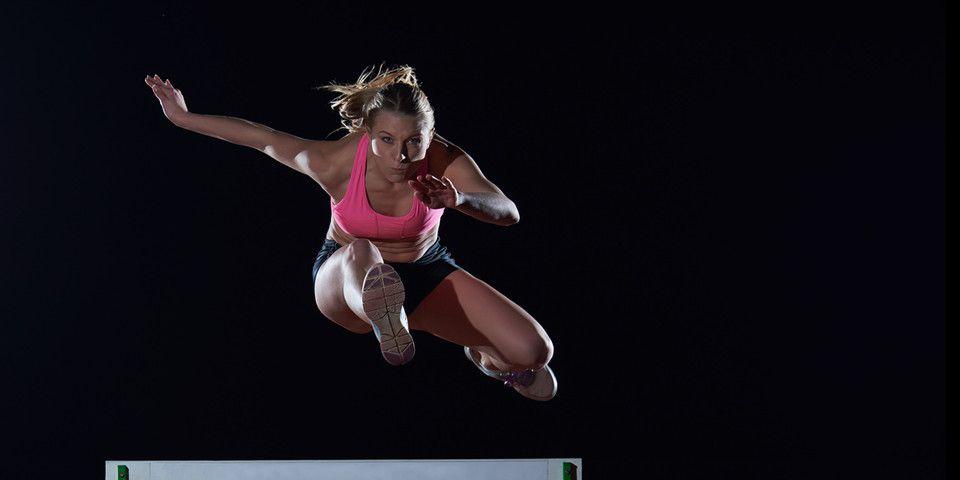Playing in the Heat: an Athlete’s Guide to Understanding Exertional Heat Stroke
Let’s talk about how to to identify the symptoms, treat the condition, and how to safely return to play if/when exertional heat stroke occurs.
Our region has been warned: the intense heat wave that went into effect last week is continuing now for the next few days. The heat index values will again reach excessive levels and the danger is very real for athletes, who are out practicing and playing in the most brutal times of the day (afternoons and early evening).
Exertional heat stroke is one of several heat related illnesses that can occur in athletes. Others include simple dehydration, heat cramps, and heat exhaustion. Of all of these, however, heat stroke is the most serious.
That’s why the sports medicine physicians at Rothman Orthopaedic Institute have put together this helpful article We want athletes themselves, as well as their coaches and parents, to be aware of the dangers associated with this illness.
Exertional Heat Stroke: What is it?
Let’s start with the basics...
Anyone can suffer from heat stroke if they are out in the heat and are not able to release heat from their body effectively. For athletes specifically, this condition occurs as exertional heat stroke, since it is the direct result of the strain of exercising in the heat.
When the body creates more heat than it can release, several distinct symptoms are exhibited. Let’s review those now.
Avoid the Dangers of Heat Stroke: Stay Aware of the Signs & Symptoms
With heat unable to effectively escape from the body, the very first and most obvious warning sign of heat stroke is an extreme rise in core body temperature. When an athlete has a spike to a temperature of 104°F (40°C), their body will then respond with the following additional symptoms of illness.
The first set of symptoms are central nervous system dysfunctions, including:
-
Altered consciousness
-
Seizures
-
Confusion
-
Emotional instability
-
Irrational behavior
-
Decreased mental acuity
In addition, an athlete experiencing exertional heat stroke, may also complain of:
-
Nausea, vomiting or diarrhea
-
Headache
-
Dizziness or weakness
-
Hot skin that is either excessively wet or dry
-
Increased heart rate
-
Decreased blood pressure
-
Rapid breathing
-
Dehydration
-
Changes in behavior, including sudden combativeness
Addressing Heat Stroke: Treatment & Returning to Play
Let’s start with the alarming truth of the matter...
Exertional heat stroke is a serious heat related illness, which has the potential to lead to permanent disability or even death if left untreated.
Here’s the good news...
 When athletes, coaches and parents are aware of the symptoms and on the lookout for warning signs associated with heat stroke, proper steps can be immediately taken to address and treat the condition. In most cases, if the athlete is effectively and quickly treated, they are able to fully recover and eventually return to play.
When athletes, coaches and parents are aware of the symptoms and on the lookout for warning signs associated with heat stroke, proper steps can be immediately taken to address and treat the condition. In most cases, if the athlete is effectively and quickly treated, they are able to fully recover and eventually return to play.
Basic Steps for Treatment of Exertional Heat Stroke:
1. Call emergency medical services for immediate transport to the closest medical facility.
2. Locate any on-site medical personnel to conduct the treatment process in the meantime. It is highly recommended that a certified athletic trainer (ATC) be available on-site during all practices and games. However, if there is no ATC present, a coach can begin the treatment themselves while waiting for the EMTs.
3. Begin intense, whole-body cooling of the athlete, which can include:
-
Removing any excess clothing or equipment
-
Immersing the individual in a tub of cold water
-
Placing cold cloths on the athlete’s skin if a tub is not available (place these over as much of the body as possible and replace them frequently to ensure they are cold)
-
Arranging a fan to provide cool air directly to the body
After an athlete has suffered heat stroke, he or she should be allowed to return to play only after a doctor has cleared him or her. The player should be careful to follow any specific instructions provided by the doctor, and ideally, their return to play should be monitored by an ATC, who will ensure that their reintroduction back into physical activity happens at an appropriate and healthy pace.
For Coaches & Parents: Tips for Avoiding Exertional Heat Stroke in Athletes
Avoiding heat-related illnesses, such as heat stroke, depends somewhat on an athlete’s own commitment to proper fitness and hydration. However, in an extreme heat wave like the one we are experiencing currently, even the most prepared player can suffer the consequences of being exposed to intense heat for hours upon hours of training.
Coaches and parents can help minimize the risk for their players by abiding by the following safety standards:
-
Talk to your school or league about having a certified athletic trainer on site for any games or practices - even during preseason.
-
Be sure that athletes have recent physical exams completed before the beginning of their sports season.
-
Parents should provide coaches with all emergency contact information for their children and should inform the coaching staff of any pre-existing condition that may put the player at greater risk for heat-related illnesses.
-
Put plain water as well as flavored sports drinks out at practice. This can help increase the amount of fluid athletes consume during and after practices and games and sports drinks will help maintain proper electrolyte levels.
-
Institute regular drink breaks during training sessions (every 20 minutes is recommended) and plan practices so that players can wear as little extra padding and equipment as possible during the very hot days.
-
Consider options for holding practice inside or at least in a shaded area of a field. If need be, remain willing to cancel or postpone activity if the heat index becomes too extreme.
Now that you are aware of the symptoms of exertional heat stroke and you know how to properly avoid and treat this condition, you’re ready to beat the heat! Stay healthy and safe out on the field of play this summer and for more information, please visit us here or contact us at 1-800-321-9999.
Related Physicians
Related Specialties
Related Programs
-

Athletic Training- Sport Medicine Outreach
Our Field Athletic Trainers provide direct sports medicine care to youth, high school, college and professional athletes. Rothman AT’s provide athletic training services throughout Southeastern PA to interscholastic high schools, colleges, as well as tournaments and special events.Read More -

Injury Prevention Program
The Injury Prevention Program at the Rothman Orthopaedic Institute is dedicated to the prevention of injuries from athletic participation, particularly youth sports.Read More -

Women’s Sports Medicine Program
The Women’s Sports Medicine Program at the Rothman Orthopaedic Institute is the first of its kind in the Philadelphia metro area and one of only several such programs specializing in the comprehensive care of the female athlete in the country.Read More




